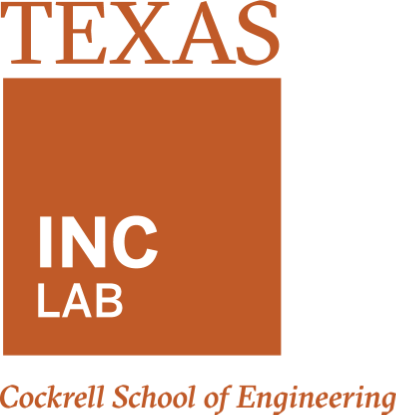Magnetic Materials & Devices – EE 396V / 379K
Description
Magnetic materials play a key role in both present and future computing for storage and logic. This senior undergraduate/graduate-level course provides a foundation for understanding the materials, physics, and engineering behind magnetic devices. It starts with the fundamentals of magnetic materials, including both classical and quantum descriptions of the origin of magnetism in oxides and metals. We discuss the different energies at play in magnetic materials such as demagnetization energy, magnetocrystalline anisotropy, exchange energy, and dipolar coupling. We describe magnetic switching mechanisms and how spin structures arise, such as domain walls and topologically-protected skrymions. By the end of the course, we are able to understand existing breakthrough magnetic devices, as well as emerging phenomena that could be applied to future memory and logic devices.
Course Topics
- Review of Maxwell’s equations and of classical and quantum origins of magnetism
- Spin-orbit coupling and exchange interactions in ferromagnets
- Magnetic oxide structures such as ferrites, perovskites, and garnets
- Spin structures such as domain walls and skyrmions
- Magnetic reversal mechanisms including spin torque effects
- Magnetic devices such as giant magnetoresistance and tunnel magnetoresistance recording heads, hard drives, and spin transfer torque magnetic random access memory
- Possibilities for future devices including memory/logic devices, multiferroic materials, spins in 2D materials, and magneto-optical devices
Prerequisites
Graduate standing or consent of instructor. Undergraduate quantum mechanics and electricity and magnetism strongly recommended
Terms: Spring 2024, Spring 2023, Spring 2021, Spring 2020, Fall 2017
Quantum Theory of Electronic Materials – EE 334K
Objectives
• Introduction to quantum mechanics (QM)
• Application of QM to the physics of atoms and molecules.
• Application of QM to the physics of the solid state, with an emphasis on semiconductor physics.
Course Topics
• Experimental Basis for Quantum Mechanics; Wave Particle Duality and Uncertainty Principle. (ER
Chpt. 1-3, McK Chpt. 4)
• Schrodinger Formulation of Quantum Mechanics; One Dimensional Examples. (ER Chpt. 5, 6)
• Schrodinger Equation: Three Dimensions. (ER Chpt. 7-9)
• Atoms and Molecules. (ER Chpt. 9,12)
• Statistical Mechanics and Applications. (ER Chpt. 11, McK Chpt. 5, 6)
• Quantum Theory of Solids. (ER Chpt. 13, McK Chpt. 8)
• Semiconductors. (ER Chpt. 13, McK Chpt. 9)
Prerequisites
M 427K (e.g., integral calculus, differential equations, Fourier series, vectors, vector calculus, gradients), and PHY 303L & 103N (primary laws of motion, wave phenomena, electricity and magnetism, optics) with a grade of at least C in each.
Introduction to Electrical Engineering – EE 302
Course Description
This course provides an introduction to some of the central elements of electric circuits, their application, and related issues. Topics covered will include the following: the scientific method, and general tools and approaches for problem-solving and analysis; fundamental physical phenomena and their connection to electrical systems; analysis and applications of analog resistive circuits, including Kirchhoff’s Laws, nodal and mesh analysis, Thévenin and Norton equivalents, and operational amplifiers; and technological, societal, and ethical issues that arise in electrical engineering. Substantial teamwork experience is included in the laboratory component of this course. The course will help students to build and understand the intellectual foundations that underlie much of electrical engineering, and to establish and appreciate connections between electrical engineering and basic sciences, mathematics, and liberal arts.
This course may be used to fulfill the natural science and technology (Part II) component of the university core curriculum and addresses the following four core objectives established by the Texas Higher Education Coordinating Board: communication skills, critical thinking skills, teamwork, and empirical and quantitative skills.
Terms: Fall 2023, Fall 2020, Fall 2019


